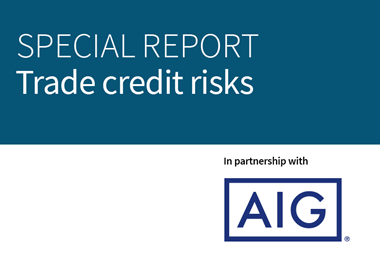Increase in rates fuelled by bad debt losses, says Marsh report

Rising European trade credit insurance rates are being fuelled by increasing risk debt losses, Marsh has claimed.
The claims are detailed in its report, European credit risks and the effects on premium rates, launched at the Airmic conference today.
The report found that rates had risen for those firms with poor loss histories since Q4 2012. This was down to customers increasingly using their suppliers as a source of cashflow funding, which in turn has created a sharp uptick in claims notifications.
It also found that since Q4 2012, there had been an increase in claims notifications and deteriorating insurance underwriting conditions across Europe, but demand for trade credit insurance products remained strong and capacity buoyant for stable risks.
In a bid to combat this growing trend, European member states were required by March this year to comply with the European Union’s directive 2011/7/EU, which was designed to harmonise the period of payment between organisations and imposes financial penalties and compensation for late remittance.
However, Marsh EMEA trade credit practice leader Tim Smith said: “While the European Union has recognised that affirmative action needs to be taken to tackle the issue of late payments as part of the wider economic recovery strategy, it remains to be seen whether the directive will have a lasting impact on payment patterns.”
“Although European trade credit insurance capacity remains buoyant, insurers are applying more stringent underwriting criteria and it will become increasingly difficult for those companies with poor loss records to buy adequate insurance protection. In order to secure competitive rates from trade credit insurers, evidence of robust financial risk management and claims histories is crucial.”
He added: “Trade credit insurance claims, in particular from Mediterranean countries and central and eastern European territories, are hitting the insurance market with increasing frequency and severity through 2013.
“Many firms are unable or unwilling to pay their suppliers on time, choosing instead to pay late to aid cash flow, or waiting until they have received funds from elsewhere in the supply chain. This situation is becoming increasingly common in Europe, particularly in the retail, construction, paper and engineering trade sectors.”




















No comments yet